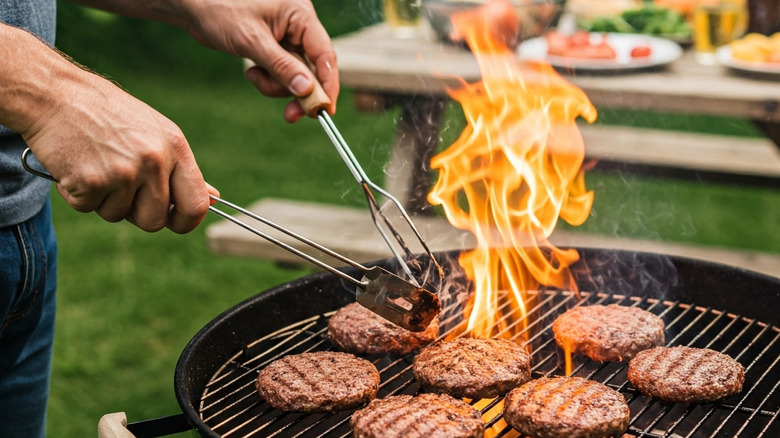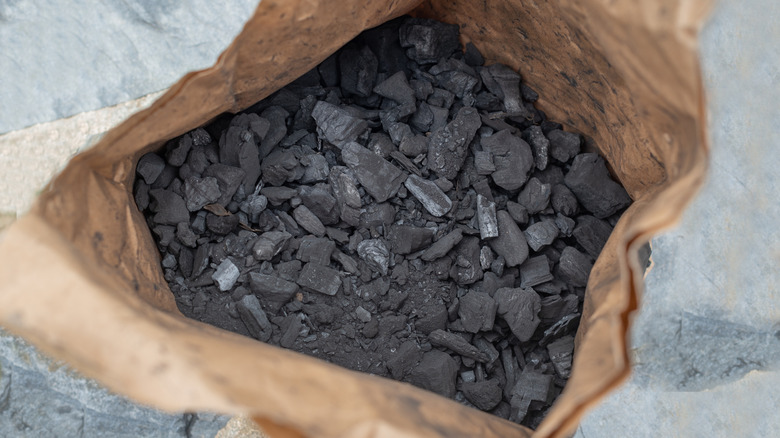Have Enough Charcoal For Your BBQ? Here's How Much You Really Need
At a barbecue, grilling duty is a big responsibility. Chances are that guests will bring food of their own — every barbecue should be a potluck — but what's cooking on the grill is always the centerpiece. Assuming you're planning to cook up the normal barbecue fare of burger patties, hot dogs, or steaks, how much charcoal can you expect to burn through before the flames begin to flicker out?
We spoke to Christie Vanover, head cook and pitmaster for Team Girls Can Grill, which competed in Season 4 of Food Network's "BBQ Brawl." According to Vanover, "For a standard cookout, you can easily cook up a great meal with a 20-pound bag of charcoal briquets, but the quantity can vary, depending on the size of your grill and how high your cooking temperature is."
Vanover also notes that the length of the cook naturally makes a difference: "Steaks and burgers cook up quickly, while brisket and pulled pork need more time over the heat," she says. A burger might only need about two minutes per side, for example, while even a smaller amount of pork shoulder should cook for hours. If you're messing around with something more unusual, like grilling watermelon for a cookout side, then it'd only take a few minutes and way less charcoal will be needed.
Check out your charcoal levels
By this point, it's probably clear that even if there are starting points, there's no magic number for charcoal. Lots of things can influence grilling time, like wind and even the kind of charcoal you're using. On the one hand, you've got lump charcoal, which is made of carbonized wood. It burns more intensely but doesn't last so long. Then you've also got your briquets, which are cheaper and last longer, but are made of sawdust and lots of other additives — and they leave behind more ash. If you decide to splurge on lump charcoal, you've got to keep an eye on it, because it'll light up fast and may need refilling much earlier. To make the most of your fuel, spread the coals out evenly and keep track of heat zones to avoid critical mistakes with your charcoal.
Lastly, it's also worth thinking about the specific grill you've got. The size of the grill does make a difference, but it's not quite as important as the way in which your grill handles the charcoal. As Christie Vanover explains, "If you have a ceramic cooker, like a Big Green Egg or Kamado Joe, the coals will last longer because of how the grill is insulated. If you have an open grill without a lid, the coals will burn more quickly, so plan to have more coals on standby."

